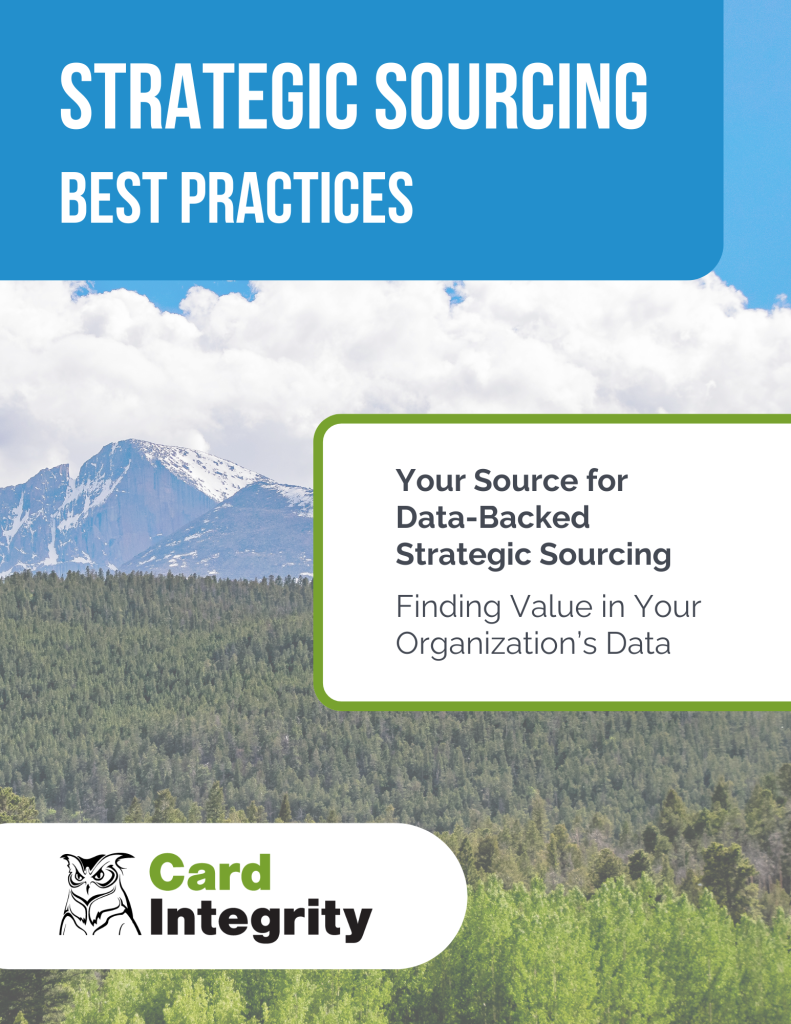If you’re running a business, or working in procurement or sourcing for a large organization, you are creating relationships whether you are fully cognizant of it at all times or not. It’s a huge part of procurement and sourcing. But some of those relationships can become a little more unique — and downright lucrative.
Case in point: “preferred suppliers.” Perhaps, at one time, your organization simply purchased products from a supplier, and there was no special relationship involved. We call this “tactical sourcing”. But somewhere along the line, something made that relationship stand out, and it motivated you to want to do business only with this specific vendor for the type of goods they offer.
It might have been the quality of the product. It might have been the level of service. But more likely than not, it’s because that supplier offered your company a monetary incentive to use them exclusively.
So your business entered into an agreement with your new preferred supplier. Rather than use other vendors, you will go to this particular supplier. And in return, your business will receive a discounted rate.
Other conditions, such as budget limitations, can be part of the agreement. But it’s that reduced rate that seals the deal.
And what is your means of completing transactions with this preferred supplier? Oftentimes, the answer is a company credit card. This little card is known by many names, like purchasing card, P-Card, and others: but no matter what your organization calls it, it’s safe, it’s easy to use, and it’s convenient.
But what if, after all the hard work of nurturing relationships with vendors and then negotiating discounts, company cardholders at your organization don’t use their P-Card to purchase from preferred suppliers? Truly, there’s a price to be paid for ignoring your preferred suppliers.
Consequences of not using preferred suppliers
Not using preferred suppliers can bring upon your company a number of consequences, including:
Loss of income. First and foremost, you are losing your agreed-upon discount. Money that you could be saving is instead being spent at unapproved vendors. This can be a tremendous loss of revenue to your business.
Loss of preferred supplier. If your preferred supplier realizes that your employees are going to other vendors to purchase identical products and services, they might decide that the agreement between your company and theirs has become null and void. Moreover, they might decide that doing business with you in the future is simply not worth it — thus, destroying all the time and hard work that went into cultivating that relationship, along with the loss of potential savings. Unfortunately, if news gets out, your cardholders’ behaviors could earn you a bad reputation among other suppliers and cause you to lose more opportunities to save money.
Loss of control. Part of the beauty of preferred suppliers is the higher amount of control a business can have over transactions. The preferred supplier agreement often spells out a number of particulars. One very important condition might be spend limits. Confident that your cardholders are using this preferred supplier, you can feel relatively assured that budget restraints for certain purchases remain in place. But if cardholders are going to non-preferred suppliers, that link in the system breaks.
Possibility of lawsuit. Most likely, there is a written contract that was agreed upon by both your company and the preferred supplier that states that your company will purchase their supplies and forgo all other suppliers. By purchasing from other vendors for the same supplies, your cardholders are not honoring that agreement. Your preferred supplier is counting on the income that your purchases will generate. If a preferred supplier learns they have been consistently by-passed for another vendor, they could sue your company for a breach of contract.
Safeguard the system using Card Integrity
Fortunately, with assistance from Card Integrity, your company has the potential to safeguard the use of preferred suppliers. Card Integrity does this in a number of ways.
One is by communicating the importance of using these vendors with your cardholders to encourage preferred supplier spending. This works in the reverse as well: Card Integrity can track debarred supplier spend too (vendors with whom your organization should NOT do business with, which can happen for a variety of reasons).
Through both training and other communication means, Card Integrity ensures that your cardholders understand all there needs to be known about working with preferred suppliers. This communication can cover:
- What a preferred supplier is.
- Who are your company’s preferred suppliers.
- Why it’s so important to use them.
- How to use them correctly according to your policies and procedures.
Moreover, Card Integrity tracking and monitoring solutions can use P-Card transaction receipts to identify the repetitive behaviors of violating cardholders. Communications can be sent to warn the violators and spell out any specific consequences your company decides are warranted to deal with their actions.
Learn more about strategic sourcing
Preferred supplier spend is one small part of an all-encompassing strategic sourcing plan for your organization. Download Card Integrity’s free eGuide, “Strategic Sourcing Best Practices” to gain insights into how to improve sourcing at your organization no matter if you’re starting from scratch or attempting to improve an existing sourcing program.
Blog post originally published August 17, 2017. Updated August 13, 2024.




